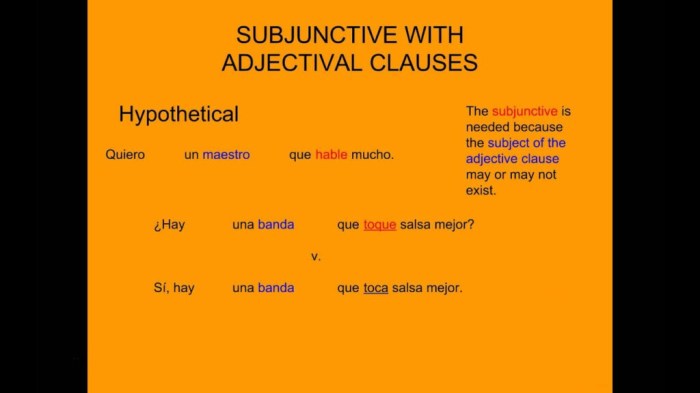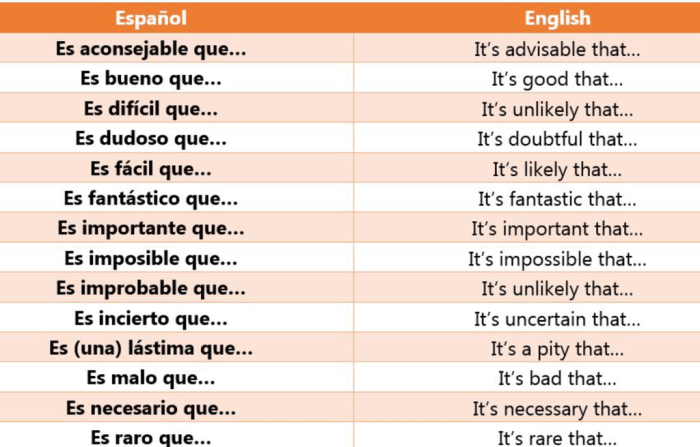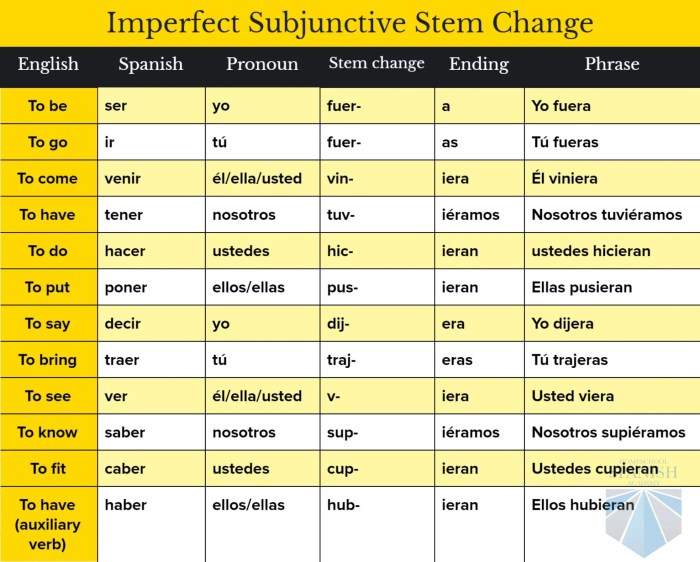Subjunctive adjective clauses spanish practice – Delving into the realm of Spanish grammar, this comprehensive guide explores the intricacies of subjunctive adjective clauses, shedding light on their concept, usage, and common pitfalls. Embark on this linguistic journey to master this essential grammatical construct and elevate your Spanish proficiency.
Subjunctive adjective clauses, a fundamental aspect of Spanish grammar, serve as dependent clauses that modify nouns or pronouns and express a subjective or uncertain perspective. They play a crucial role in conveying a wide range of ideas, from hypothetical situations to emotional states.
Subjunctive Adjective Clauses

Subjunctive adjective clauses are a type of subordinate clause that modifies a noun or pronoun in the main clause. They express a variety of meanings, including possibility, uncertainty, desire, and emotion. Subjunctive adjective clauses are introduced by the conjunctions queand de que.
For example:
Quiero un libro que sea interesante.
I want a book that is interesting.
In this example, the subjunctive adjective clause que sea interesantemodifies the noun libro. It expresses the speaker’s desire for a book that has the quality of being interesting.
Types of Subjunctive Adjective Clauses, Subjunctive adjective clauses spanish practice
There are three main types of subjunctive adjective clauses:
- Essential clausesare necessary to define the noun or pronoun they modify. They cannot be omitted without changing the meaning of the sentence.
- Non-essential clausesprovide additional information about the noun or pronoun they modify. They can be omitted without changing the meaning of the sentence.
- Restrictive clausesnarrow down the meaning of the noun or pronoun they modify. They identify a specific subset of the group referred to by the noun or pronoun.
FAQs: Subjunctive Adjective Clauses Spanish Practice
What are subjunctive adjective clauses?
Subjunctive adjective clauses are dependent clauses that modify nouns or pronouns and express a subjective or uncertain perspective.
When should I use the subjunctive mood in adjective clauses?
The subjunctive mood is used in adjective clauses when the main clause expresses an emotion, opinion, or doubt.
What are common mistakes to avoid when using subjunctive adjective clauses?
Common mistakes include using the indicative mood instead of the subjunctive mood and omitting the “que” conjunction.

